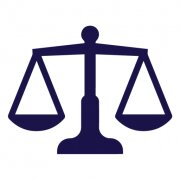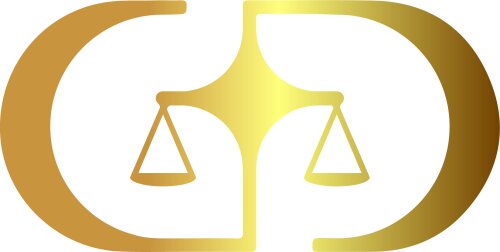Best Class Action Lawyers in Argentina
Share your needs with us, get contacted by law firms.
Free. Takes 2 min.
Or refine your search by selecting a city:
List of the best lawyers in Argentina
About Class Action Law in Argentina
Class action law in Argentina allows a group of individuals to collectively bring a claim to court. This form of legal action is particularly useful when numerous people have experienced similar harm or have similar grievances against a defendant. Class actions in Argentina are designed to ensure judicial efficiency by consolidating many similar individual claims into one representative lawsuit, thereby saving resources and time for both the court and the parties involved.
Why You May Need a Lawyer
There are several situations where seeking legal guidance in class action lawsuits may be crucial:
1. Consumer Rights Violations: Instances where a company may have violated consumer protection laws affecting a large number of people.
2. Environmental Damage: Circumstances involving environmental harm impacting communities, such as pollution or illegal resource extraction.
3. Employment Law Breaches: Cases where employees collectively face wrongful treatment, discrimination, or unfair labor practices.
4. Financial Sector Misconduct: Scenarios where financial institutions engage in practices harming numerous clients, such as fraud or breach of fiduciary duty.
Legal assistance is vital in navigating the complexities of class action suits, ensuring proper representation, claim management, and maximization of legal outcomes.
Local Laws Overview
Several key aspects of local laws in Argentina are particularly relevant to class actions:
1. The Argentine Civil and Commercial Code: Offers the foundational legal framework for class actions, including standing, procedures, and judicial approvals required.
2. Consumer Defense Law: Provides specific provisions for consumer-related class actions, offering protections and procedures for claims arising from consumer rights violations.
3. Environmental Framework Law: Establishes guidelines for bringing environmental harm-based class actions, including responsibilities and preventive measures.
Legal precedents and case law also significantly impact the management and outcomes of class actions in Argentina, highlighting the importance of legal expertise.
Frequently Asked Questions
What is a class action lawsuit?
A class action lawsuit is a legal proceeding that allows one or more plaintiffs to file and prosecute a lawsuit on behalf of a larger group, or "class," of individuals who have similar claims against the same defendant.
How do I know if I am part of a class action?
Individuals typically receive a notice informing them of their inclusion in a class action. This notice explains the nature of the lawsuit, the class definition, and the rights of class members.
What are the benefits of participating in a class action?
Class actions can provide individuals with a more economical way to seek justice, share legal fees, and strengthen legal leverage by pooling claims together. It also promotes accountability for defendants.
Can I opt out of a class action?
Yes, a class member can choose to opt out of a class action if they desire to pursue their claim individually or not participate at all. Opt-out procedures and deadlines are usually outlined in the class notice.
What happens if the class action is successful?
If a class action is successful, the court may award damages or other relief to the class. The settlement or verdict may then be distributed among class members as per court directives.
Do I need to pay anything to join a class action?
Typically, class members do not pay upfront; attorneys often work on a contingency basis, where they receive a percentage of the recovered amount only if the case is successful.
How long does a class action lawsuit take?
The duration varies widely depending on the case complexity, volume of evidence, and court procedures. Some class actions resolve in months, while others may take several years.
Can foreigners participate in class actions in Argentina?
Participation eligibility is generally determined by the definition of the class in the lawsuit. Foreigners may be included if they are part of the affected group and the court acknowledges their inclusion.
How is a class action different from a regular lawsuit?
A class action involves large groups of claimants with common interests, tried together to improve efficiency and cohesively manage claims, versus individual suits handled separately.
Who can initiate a class action in Argentina?
Class actions can be initiated by individuals representing the class, consumer protection agencies, or non-governmental organizations acting in the interest of the affected groups.
Additional Resources
Below are resources that can assist those seeking information or support concerning class actions in Argentina:
1. National Directorate for Consumer Defense: Offers advice and support on consumer protection and rights.
2. Argentine Bar Association: Provides information on finding qualified legal professionals specializing in class actions.
3. Ombudsman Offices: Can assist in matters related to class actions, especially where public interest is concerned.
Next Steps
If you believe you are involved in or affected by a situation warranting a class action, consider these steps:
1. Consult a Lawyer: Seek legal advice to assess your situation and understand your rights. A lawyer specializing in class actions can offer valuable insights and representation.
2. Gather Evidence: Collect any documentation or evidence relevant to your case. This may strengthen the claim and assist your legal team in building a strong case.
3. Stay Informed: Regularly update yourself on developments in your case by maintaining communication with your legal representative and attending any court proceedings you are informed about.
Being proactive and informed will help you navigate the complexities of class actions in Argentina efficiently.
Lawzana helps you find the best lawyers and law firms in Argentina through a curated and pre-screened list of qualified legal professionals. Our platform offers rankings and detailed profiles of attorneys and law firms, allowing you to compare based on practice areas, including Class Action, experience, and client feedback.
Each profile includes a description of the firm's areas of practice, client reviews, team members and partners, year of establishment, spoken languages, office locations, contact information, social media presence, and any published articles or resources. Most firms on our platform speak English and are experienced in both local and international legal matters.
Get a quote from top-rated law firms in Argentina — quickly, securely, and without unnecessary hassle.
Disclaimer:
The information provided on this page is for general informational purposes only and does not constitute legal advice. While we strive to ensure the accuracy and relevance of the content, legal information may change over time, and interpretations of the law can vary. You should always consult with a qualified legal professional for advice specific to your situation.
We disclaim all liability for actions taken or not taken based on the content of this page. If you believe any information is incorrect or outdated, please contact us, and we will review and update it where appropriate.
Browse class action law firms by city in Argentina
Refine your search by selecting a city.














